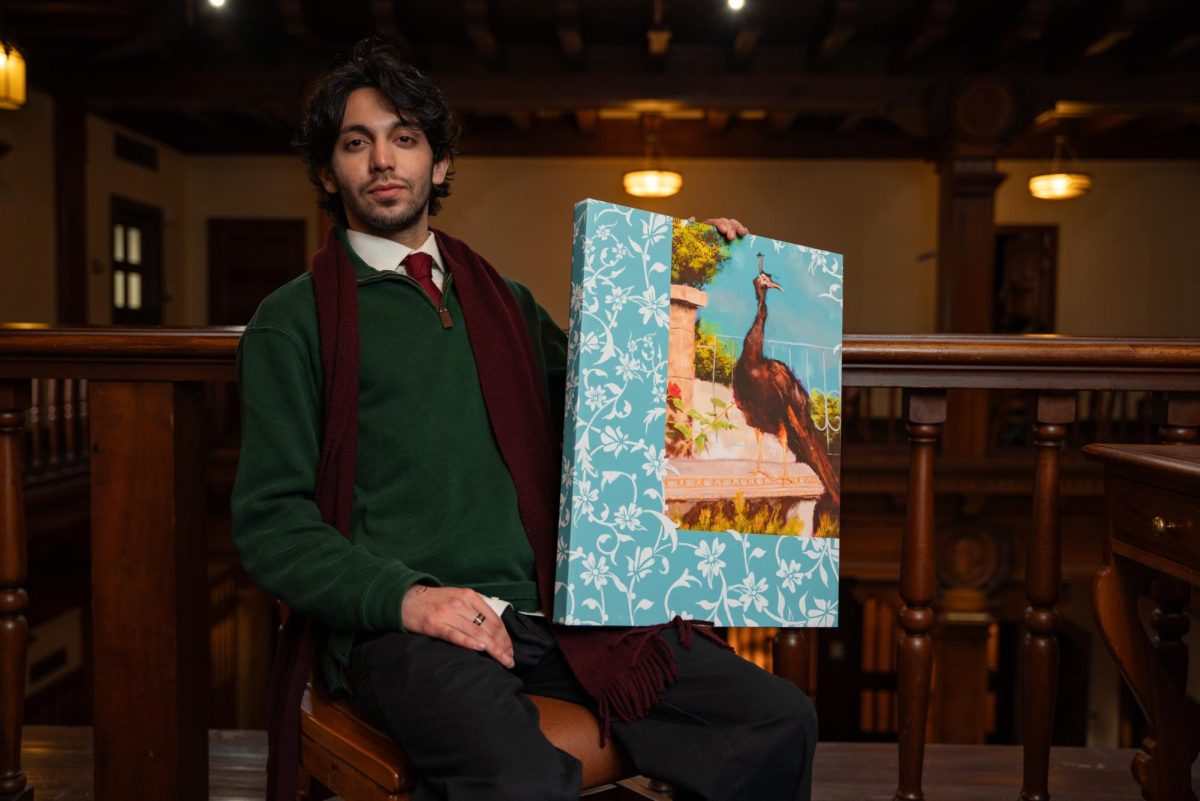Several dozen people have slept on Chad Greene’s beat-up, green futon before — from foreign travelers to apartment hunters and prospective UT students. And as someone who felt like he has always had itchy feet syndrome, Greene himself has stayed in more than 50 strangers’ homes since he was 18 as he traveled across the United States and Europe, sleeping anywhere from guest bedrooms to beneath kitchen tables.
The 26-year-old mechanical engineering graduate student is a member of CouchSurfing, the world’s largest exchange program, where a person can move into someone’s home for a brief period of time, usually a few days. Members of CouchSurfing can also offer their own available space to other travelers.
Austin has more than a thousand registered couch surfers online. Along with Houston, it is one of the cities with the most users in Texas.
“Originally I was just trying to save money, but now I do it for the experience,” Greene said. “It’s so much better to get to know someone and get to see how local people fill their time. It’s not like when you go to a hotel and get a pamphlet for parasailing, which you know the people who live there aren’t doing.”
Members of CouchSurfing can post photos, create a profile and specify how long someone can stay in their home. Some members only answer personalized messages and refuse to consider copy-and-pasted, spammed couch requests. Although it is best to contact a few days in advance, most couch surfers seem understanding about the unpredictability of traveling, Greene said.
To gain credibility, past surfers are able to leave references on their host’s profile about their experience. The website shows which members have their location and identity verified.
“It’s better to have a full profile,” said fine arts senior Lauren Cryer, who couch surfed for the first time while in Argentina and Peru this summer. “You should put as much of your personality on your profile as possible because people want to know who they’re letting into their home.”
Before staying with a host family in Argentina for her study abroad program, Cryer couch surfed alone in Buenos Aires, a popular couch surfing destination, where her host took her out for drinks and to concerts.
“I never felt like I was in danger the entire time I was there, but I’m not going to say that couch surfing is always safe, especially if you’re a woman traveling alone,” Cryer said. “Trust your instincts.”
Before Greene joined the website, he eased into couch surfing on his own accord. As a high school graduate biking, hiking and camping his way across America, he knocked on doors to look for a place to stay. It helped that people saw all he had was his backpack and bike, he said.
Describing himself as someone fascinated with do-it-yourself culture, Greene said it was enthralling to stay with a variety of people, including a bee keeper, a person who kept sheep, someone who killed his own animals for meat and once, in West Texas, a man who built his house out of stone.
“For me, I want a personal connection,” Greene said. “Every hotel room is the same, but no two people are the same.”
Sometimes the people he stayed with made him breakfast, or invited him to dinner. The hospitality a person will show to a stranger amazes him, Greene said.
“I noticed the poorer people tended to be the most friendly and most willing to give you everything,” he said. “Some of the more affluent people wouldn’t even open their doors.”
In six weeks, Greene plans to go to India with his girlfriend, where he hopes his host will be able to tell him the best places to visit.




















